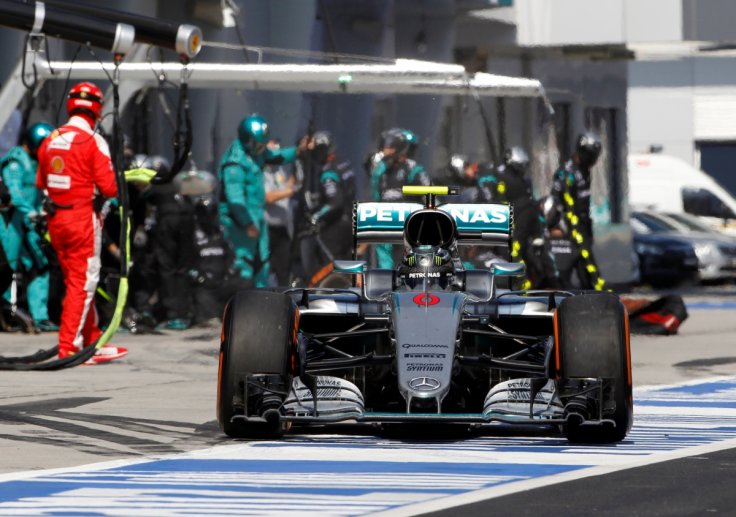
The coronavirus pandemic has affected literally every sector of society. This has forced different industries to go beyond their usual line of work and do their bit in helping combat the virus fallout. Formula 1 is one of the sectors that has been badly affected by the pandemic.
Now, in order to help fight the "battle beyond the race track", a team of high performance engineers from Mercedes AMG Formula One team has joined hands with the University College London (UCL) to help develop a new breathing aid for coronavirus patients.
When Formula 1 meets healthcare
The team has invested their time and expertise in making the innovative breathing machine that could help keep COVID-19 patients out of intensive care without the need for a ventilator.
The Continuous Positive Airway Pressure (CPAP) device has been developed in less than a week. The device has been approved for use by the NHS and is currently being trialed at the UCLH and various hospitals throughout London.
Reduce the need for ventilators
The device will reduce the need for invasive mechanical ventilation among patients, according to UCL, cutting down the dependence on thousands of ventilators across the country.
CPAP devices have been used extensively in hospitals in China and Italy to deliver air and oxygen under pressure to coronavirus patients with breathing difficulty and help them breathe more easily without a ventilator, which is a more invasive process requiring the patients to be sedated and a intubated.
"These devices will help to save lives by ensuring that ventilators, a limited resource, are used only for the most severely ill," said Professor Mervyn Singer, a critical care consultant at UCLH.
"We were able to reduce a process that could take years down to a matter of days," he said.
The CPAP devices could help reduce the demand for ICU staff and beds, as well as the need for ventilators, which are currently in short supply.
"We hope they will make a real difference to hospitals across the UK by reducing demand on intensive care staff and beds, as well as helping patients recover without the need for more invasive ventilation."
Ventilators in short supply
The UK, like many other countries, is struggling with a shortage of intensive care staff and life-saving ventilators as the number of coronavirus patients continues to grow. The NHS has only less than a third of the ventilators it requires.
The Mercedes AMG High Performance Powertrains (HPP) who worked with engineers and clinicians at UCLH at the UCL's MechSpace hub were able to reverse engineer the device which can be produced in a matter of hours. It took less than 100 hours for the teams to develop the CPAP device from their initial meeting to production of the first unit.
Champions beyond the race track
"The Formula One community has shown an impressive response to the call for support.. We have been proud to put our resources at the service of UCL to deliver the CPAP project to the highest standards and in the fastest possible timeframe" Andy Cowell, Managing Director if Mercedes AMG High Performance Powertrains, told the BBC.
The new breathing aid has been approved by the British National Health Service (NHS) and over a 100 of the machines are being delivered to the UCL Hospital for trial. Forty devices have already been delivered to a number of hospitals across London after the Medicines and Health products Regulatory Agency approved its use.
If everything goes well with the trials, the teams will start work on another 1,000 units which will be delivered across the country starting next week.
Britain has reportedly placed an order for about 10,000 ventilators which will be made by a consortium of several big names from the automotive industry such as Ford, Rolls-Royce and French aircraft maker AirBus.
How Coronavirus has impacted Formula 1
Formula 1 has been one of the worst affected sporting events due to the coronavirus pandemic. The first race on the 2029 F1 calendar, the Australian Grand Prix, was cancelled on the eve of qualifying. The subsequent Bahrain GP and Vietnam GP have been postponed indefinitely. Races in China, Holland, Span, Monaco and Azerbaijan have either been postponed or cancelled, leaving the first half of the 2020 season unable to get underway until at least mid-June.









